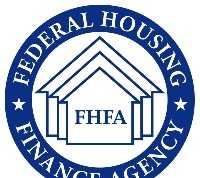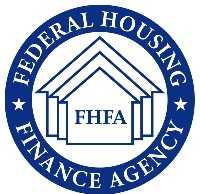Additional $1 billion requested for housing counseling, affordable housing & homeless
WASHINGTON – The Bush Administration’s Fiscal Year 2009 Budget seeks $38.5 billion for the U.S. Department of Housing and Urban Development, which represents a $3.2 billion or nine percent increase over the President’s proposed budget for FY 2008 and $1 billion more than HUD’s current budget authority. In revealing details of next year’s proposed spending blueprint, HUD Secretary Alphonso Jackson noted the 2009 Budget includes significant increases for housing counseling, homeless assistance and affordable housing programs.
“This budget demonstrates President Bush’s commitment to protecting homeownership by helping families facing foreclosure, while recognizing the need for more affordable rental housing,” said Jackson. “The President is also making certain that HUD’s budget once again includes record funding to support homeless individuals and families.”
The 2009 Budget seeks a record $1.636 billion to support thousands of local homeless programs; $2 billion to promote local affordable housing development; and $29.4 billion for rental assistance for low-income families.
PROTECTING HOMEOWNERSHIP
While homeownership rates continue at near historic levels, many lower income families are facing the prospect of foreclosure as their subprime adjustable-rate mortgages reset. To combat this challenge, the President seeks $65 million for housing counseling, a $15 million increase over 2008.
In June 2002, President Bush challenged the nation to close the minority homeownership gap by increasing the number of minority homeowners by 5.5 million by the end of this decade. Since the President issued his challenge, 3.74 million minority families have joined the ranks of homeowners, putting the nation on schedule to reach the President’s goal. The FY 2009 Budget includes increases to several programs that advance the President’s goal of creating and preserving an ownership society:
- The Federal Housing Administration (FHA) – FHA is undergoing a historic transformation to give homebuyers who do not qualify for prime financing a better alternative to high-cost, high-risk loan products. Many of these types of non-traditional mortgages triggered high foreclosure rates that the nation is currently experiencing. The House and Senate overwhelmingly agree with the Administration’s proposal to modernize the FHA and are currently working on a reconciled bill for the President’s signature.
- HOME Investment Partnerships (HOME) Program – HOME is the largest federal block grant program dedicated to creating affordable housing for low-income families. The Administration is proposing $2 billion for the HOME program in FY 2009, an increase of $263 million from FY 2008 enacted. Each HOME dollar allocated to a local jurisdiction traditionally leverages more than three dollars from other public and private sources.
- Housing Counseling – The proposed Budget requests $65 million, $15 million increase over current levels, to support 2,300 housing counseling agencies across the country. In fact, the President has increased funding for housing counseling by 150 percent since taking office in 2001. These programs offer a wide array of counseling services to prepare families to buy their first home, to avoid predatory lending practices, and assist current homeowners facing default. Housing counseling is the most cost-effective way to educate renters and homeowners to make informed financial decisions and avoid high-risk, high-cost loans that place them at greater risk of foreclosure.
- Self-Help Homeownership Opportunity Program (SHOP) – By supporting self-help homeownership programs like Habitat for Humanity and others, HUD’s SHOP program helps families to realize the American Dream of homeownership through so-called sweat equity grants. Those who benefit from SHOP funds must contribute at least 100 hours of their own labor to help construct or rehabilitate their new home. The Budget seeks $39 million for SHOP in FY 2009, an increase of $12.5 million over the current appropriation.
RENTAL ASSISTANCE FOR LOW-INCOME HOUSING
The FY 2009 Budget proposes a total of $16 billion in funding for tenant-based rental assistance including HUD’s Housing Choice Voucher Program, $336.3 million more than 2008. In addition, HUD’s budget seeks $7.4 billion in Section 8 Project-Based rental assistance including a $400 million advanced appropriation to ensure timely payments to owners and represents nearly $1.2 billion more than last year’s request. Combined, the total proposed funding for the Department’s rental assistance and public housing capital and operating funds total $29.4 billion – funding that will help an estimated 4.8 million American families to afford a decent home.
HOUSING FOR THE HOMELESS & PERSONS LIVING WITH HIV/AIDS
- Continuum of Care – Once again, the President is proposing a record level of funding to house and serve homeless persons and families. The FY 2009 Budget seeks $1.636 billion through HUD’s Continuum of Care and Emergency Shelter Grant programs. This request represents $50 million more than the current appropriation. Since 2001, HUD has awarded $10 billion in homeless assistance nationwide. This funding will support more than 6,000 local housing and service programs that provide emergency, transitional, and permanent supportive housing to more than 160,000 persons.
- Veterans Affairs Supportive Housing Program (VASH) – provides permanent housing subsidies and case management services to homeless veterans with mental disorders and substance addictions. The U.S. Department of Veterans Affairs (VA) screens homeless veterans for program eligibility and provides case management services to enrollees. HUD allocates rental subsidies from its Housing Choice Voucher program to the VA, which then distributes them to the enrollees. The FY 2009 Budget request for $75 million will add an additional 9,800 vouchers to the program; this continues the Department’s commitment to our nation’s veterans and will double the number of available vouchers. Thus, if the FY09 Budget is enacted, approximately 20,000 veterans will be participating in the program. The VASH program serves a segment of the homeless subpopulation also targeted by the Administration’s initiatives to reduce the number of chronically homeless Americans.
- Housing Opportunities for Persons with AIDS (HOPWA) – The FY 2009 Budget seeks $300 million to support stable housing, improved access to health care, and more supportive services for low-income persons living with HIV/AIDS – an increase of $14 million over FY 2007. Through formula grants to States and local communities, as well as competitively awarded grants, these resources will provide critically needed housing assistance to 67,000 persons and families.
FAIR HOUSING
One of HUD’s core missions is to increase access to affordable housing free from discrimination. As the Department continues to make progress to close the minority homeownership gap, it is critical that HUD’s fair housing program bring about greater equality in housing by protecting the right of families and individuals to live where they choose.
For FY 2009, the Budget includes $51 million to support enforcement, education and outreach efforts to ensure that Americans are not denied housing based on their race, religion, sex, family status or disability. This requested amount is $1 million higher than the current appropriated level and supports HUD’s ongoing efforts to combat discrimination across the nation, particularly against persons with disabilities. Protecting the fair housing rights of persons with disabilities continues to be a Departmental priority.
COMMUNITY DEVELOPMENT
The FY 2009 Budget proposes to fund the Community Development Block Grant (CDBG) Program at $3 billion. The program’s underlying formulas have remained essentially the same since 1978 while the nation’s demographics have changed significantly. It is increasingly clear that an outdated formula that once measured the needs of urban America no longer reflects the modern needs of today’s cities, larger urban counties and States. The FY 2009 proposal is in line with the President’s commitment to target resources to areas of greatest need.
Meanwhile, the Department will continue to pursue formula fairness by appealing to Congress to approve a new allocation formula that will more effectively target CDBG funding to areas of highest need, which is often not the case currently. In addition, HUD will work to boost performance measurements within CDBG to ensure these critically needed dollars produce the results the program was designed to achieve.
NOTE: To read HUD’s FY 2009 Budget Summary, visit HUD’s website.
###
HUD is the nation’s housing agency committed to increasing homeownership, particularly among minorities; creating affordable housing opportunities for low-income Americans; and supporting the homeless, elderly, people with disabilities and people living with AIDS. The Department also promotes economic and community development, and enforces the nation’s fair housing laws. More information about HUD and its programs is available on the Internet at www.hud.gov and espanol.hud.gov.













